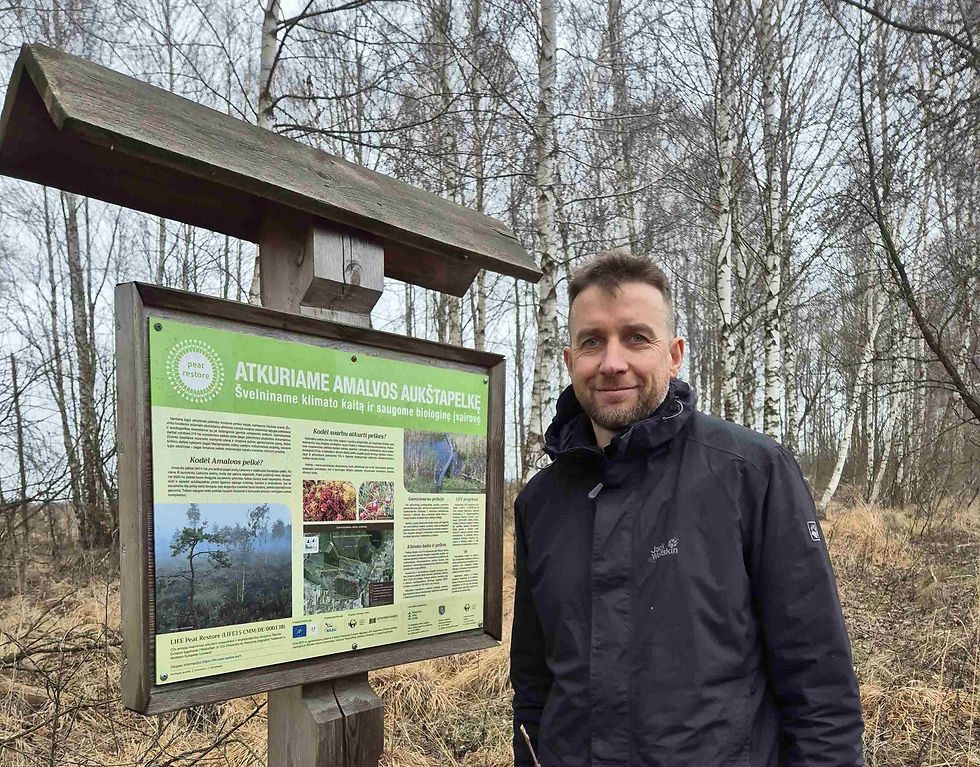Arborist works were performed in the parks of Antalieptė and Kamariškės manors
- Jan 24, 2022
- 3 min read

Historical parks attract visitors not only with cultural heritage, but also with water bodies, greenery and greenery created by professional landscape architects or gardeners during the heyday of manors or monasteries with impressive trees and ancestors that have reached our times. Not all the harmoniously designed greenery at that time, like the buildings or their complexes, survived. Many of them have changed greatly or even disappeared during the course of history, some of them have been lucky, so today we can see, feel and touch them while visiting the historical parks. times. In order for the old trees of the parks to delight visitors for decades or even centuries, it is important to take proper care of them and their environment in a timely manner. This is important not only for the safety of park visitors, but also for the longevity or even survival of the trees themselves, the protection of biodiversity and the performance of other ecosystem services provided by trees.
In 2020, the implementers of the Interreg program project “Save the Past for the Future LLI-476” (LLI-476 Save Past for the Future) in Lithuania - experts of the Wetlands Restoration and Protection Fund - carried out inventory of ancestors valuable for the protection of biological diversity and provided recommendations for the improvement of the condition of trees that have reached natural maturity and the arrangement of their habitats, adaptation of the territories for the needs of society and nature protection. The management of tree crowns (reduction pruning, crown reinforcement with dynamic rope, etc.) and wound healing aim to improve the sanitary condition of trees and to preserve rare species of sponge fungi, leaf and shrub lichens and epiphytic mosses.
Based on the recommendations in 2021. Improvement of the condition of trees valuable in terms of biodiversity and dangerous to visitors in the historical parks of the Antaliptian monastery and Kamariškės manor was carried out. The permit required for tree management was granted by a commission formed by the Zarasai Municipality Administration. Work was carried out in the first half of March to prevent disturbance to the birds preparing for the transition. The works were performed by certified MB Balta laja arborists who have won the competition and have the necessary qualifications for the care of valuable trees, certificates issued by the Lithuanian Arborists Association, high-altitude certificates and experience of similar work in the region. Arboristic crown management and removal of dangerous branches (maintaining optimal dead branches suitable for maintaining biodiversity) of trees that are dangerous and valuable for biodiversity (mainly small-leaved lindens, common oaks and common maples) have been carried out.
20 trees and two groups of small-leaved lindens (6 and 16 trees each) were arranged in Antalieptė Park, and 14 trees in Kamariškės Manor Park. The condition of these and other valuable trees growing in the parks will be monitored in the future. Professional care of arborists is expected to ensure the longevity of tree ancestors, and properly tended trees will remain a valuable habitat for a long time for a variety of organisms, not only the aforementioned fungi, lichens and mosses, but also insects, birds, bats and other small mammals.
The works are carried out with the funds of the international project “Improvement of ecological conditions of water bodies in Latvia and Lithuania” LLI-476 Save Past for the Future (LLI-476 Save the Past for the Future). The project is funded in Lithuania in 2014–2020. Interreg V-A Latvian-Lithuanian Cross-Border Cooperation Program and the Republic of Lithuania.
Project "LLI-476 Save the Past for the Future"
2014-2020 Interreg V-A Latvian-Lithuanian cross-border co-operation program
The total value of the project is EUR 1,030,848.12,
of which - co-financing of the European Regional Development Fund - EUR 876,220.89.
The aim of the project is to increase the capacity of organizations involved in the restoration and maintenance of historic parks in the regions of North-Eastern Lithuania and Latgale through modern and comprehensive land management provisions combining historical, natural and biodiversity values and aspects of the rural landscape.
This article has been produced with the financial assistance of the European Union.
The State Agency for the Restoration and Protection of Wetlands is responsible for the content.
The contents of this article do not necessarily reflect the official position of the European Union.
Program website www.latlit.eu.
EU website www.europa.eu.
📷 Photos by Žydrūnas Sinkevičius
























Comments